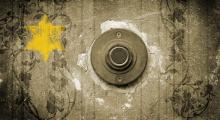Christianity
IN OCTOBER 1968, the renowned Trappist monk and spiritual writer Thomas Merton set out for Asia on what would be his final pilgrimage, desiring “to drink from [the] ancient sources of monastic vision and experience.” From his monastery in Kentucky, he had long dreamed of meeting with Buddhist teachers face to face, close to the sources of Eastern mysticism, and fulfilling what he believed to be the vocation of every Christian: to be an instrument of unity.
Three times during his journey Merton met with the young Dalai Lama, who would later say, “This was the first time that I had been struck by such a feeling of spirituality in anyone who professed Christianity. ... It was Merton who introduced me to the real meaning of the word ‘Christian.’”
After Merton’s sudden death in Bangkok on Dec. 10, 1968—the result of an accidental electrocution—his body was returned to the U.S. in a military transport plane that carried the bodies of soldiers killed in Vietnam, a war he had condemned forcefully. His body was laid in the earth on a hillside behind the monastery, overlooking the Kentucky woods where he lived as a hermit the last years of his life. Pilgrims from all over the world continue to visit the Abbey of Gethsemani and pray before the simple white cross that marks Merton’s grave. Why? One hundred years after his birth, the question is well worth asking. What particular magic draws seekers of every generation and of such remarkably diverse backgrounds to Thomas Merton?
SON OF A CENTURY
Merton’s appeal to postmodern sensibilities may be explained in part by his own renaissance background. Born in France in 1915 to an American mother and a New Zealand father, itinerant artists who had met in Paris, Merton spent much of his youth traveling between Europe and America. By the time he was 16, both of his parents were dead. He enrolled at Cambridge, but his raucous behavior there quickly prompted his godfather to send Merton back to the U.S., where he enrolled at Columbia University and soon thrived among an avant-garde group of friends.
More and more he found himself drawn to Catholic authors, devouring works by William Blake, Gerard Manley Hopkins, James Joyce, and Jacques Maritain. As he later described this period, something deep “began to stir within me ... began to push me, to prompt me ... like a voice.” To the shock of his friends, Merton announced his desire to become a Roman Catholic and was baptized on Nov. 16, 1938, in New York. Two years later Merton began teaching English at St. Bonaventure. After spending Holy Week of 1941 on retreat at the Abbey of Gethsemani in the hills of rural western Kentucky, Merton decided to become a Trappist monk, part of a Catholic religious order of cloistered contemplatives who follow the 1,500-year-old Rule of St. Benedict.
It was the publication in 1948 of his autobiography,The Seven Storey Mountain, set against the shadow of World War II, that established Merton as a “famous” monk and a wholly unexpected literary phenomenon. In addition to publishing spiritual meditations, journals, and poetry, during the 1960s he published penetrating essays in both religious and secular venues on the most explosive social issues of the day, the religions of the East, monastic and church reform, and questions of belief and atheism.
As a model for Christian holiness, Merton was far from perfect. In fact he took pains to distance himself from his early, more pious writings, and insisted on his right not to be turned into a myth for Catholic school children. He was a restless monk, and often chafed against his vows of stability and obedience. In 1966, during a hospital stay in Louisville, Ky., he fell in love with a young student nurse, and for some six months they had a kind of clandestine affair.

THE U.S. AND other nations are increasingly aware that the so-called Islamic State is a serious, long-term threat to Middle East stability. And it has become clear that there are few good options for addressing the situation without the willingness and ability of the Iraqi government to promote inclusion and weed out corruption.
In the midst of all this, the plight of Iraqi Christians has taken center stage. Since the U.S.-led invasion of Iraq in 2003, more than two-thirds of the Iraqi Christian community has left the country, with many fleeing as a result of violence and religious persecution.
This exodus has only increased as the reach of the Islamic State, or ISIS, has expanded and its reputation for brutality become widely known. The militant group has publicly beheaded hostages for propaganda purposes, committed mass killings, and given Christians the ultimatum: Convert to Islam, pay a fine, or face death if they remain faithful to their beliefs.
Followers of Christ have existed in the area now called Iraq since the earliest days of Christianity. Now there is a serious debate as to whether the faith has a viable future in this ancient of lands.

Some friends of mine took their 3-year-old daughter to a Starbucks coffee shop for the first time. “Mommy,” she asked, “are we in church?” Given the way some of us love coffee I suppose one answer might have been, “Yes, dear, I guess we are in a place of worship.” But the larger question for me is, “have we so accommodated a culture of materialism and consumption that we have lost the heart of the gospel?”
The gospel ought to consume us; instead we have turned it into a consumable.
I believe the good news about the reign of Christ over the all creation, the invitation to love our enemies, the vision of communities beating their weapons into agricultural implements, has been turned into a product. For many the gospel has been reduced to a privatized salvific experience purchased through a ministry outlet mall – the church dressed up like a coffee shop selling cups of Pumpkin Spice Savior.
The original Great Commission was issued in Genesis 1:28: “Be fruitful and multiply, and fill the earth and subdue it; and have dominion over the fish of the sea and over the birds of the air and over every living thing that moves upon the earth." In this was an invitation for the creatures that had been made in God’s image to steward all life. Instead of “fill the earth,” the King James Version says, “replenish the earth.” In fact the Hebrew word for fill, mala, is just as easily translated “fulfill” or even “satisfy.” There is something about our place in the cosmos that satisfies the earth like nothing else. As God’s vice regents, we were designed to govern ourselves and our planet with the wisdom, grace, and creativity of the Maker of All Things.

The End of Our Exploring by Matthew Lee Anderson is worth reading. In fact, it’s worth getting the book just to read the last nine pages of his final chapter that beautifully and poignantly describes a Christian life well questioned.
The theme of the book is the challenge of questioning well. Anderson argues that not only is questioning important to a well-reasoned faith, but it is core to the development of Christian intellect and character. Writing out of a conservative Christian context that is often characterized as an anti-intellectual space that discourages those whose questions would disrupt the status quo, Anderson makes a critical case for questioning’s importance to that community — a case that applies well to the Christian community as a whole.
The End of Our Exploring includes his critique of a culture that prizes “sincerity” above all else (35), his distinction between easy access to information and pursuing understanding (72), his condemnation of the constant pursuit of novelty in place of truth (117), and his encouragement that churches allow “belonging after believing” for those who have turned away from their faith (204), just to name a few. And I would be remiss if I did not mention the section in which he points to our personal friendship as “good for America,” as we are friends who believe that the other is wrong about nearly everything (160).
In that vein, I don’t want to spend too much time pointing out my areas of agreement when we both have a lot more fun jumping in on the areas of contention.

What does a map of the U.S. religious landscape look like in 140 characters?
A new study of Twitter finds that self-identified religious users are more likely to tweet to members of their own faith than to members of a different one. The study examined people whose Twitter profiles identified them as Christian, Jewish, Muslim, Buddhist, Hindu and atheist.
And while adherents of all six groups studied tweet frequently, atheists — among the smallest populations in the U.S. — are the most prolific.
“On average, we can say the atheists have more friends, more followers, and they tweet more,” said Lu Chen, a doctoral candidate at the Kno.e.sis Center at Wright State University who co-authored the study with Adam Okulicz-Kozaryn of Rutgers University-Camden. They will present their findings in November at the sixth annual International Conference on Social Informatics.

Faith is a journey, a Pilgrim’s Progress filled with mistakes, learning, humble interactions, and life-changing events. Here are a few things I would do differently if I could go back and start over:
1. I wouldn't worry about having the right answers.
There’s a misconception that the Bible is the Ultimate Answer Book and Christianity is a divine encyclopedia presenting the solutions to life’s biggest questions. In reality, the Christian faith is about a relationship with Christ instead of an academic collection of right or wrong doctrines.
Rather than wasting time, energy, and resources on superficial theological issues — I would focus more of getting to know Jesus. Never let a desire for “being right” obstruct your love for Christ.

We met over email in the spring of 2012. I had just co-launched a literary blog and our mutual friend introduced us as fellow writers. Stephanie and I immediately hit it off. Not only was she a gifted writer, Stephanie and I shared a similar sense of humor and sensibility. As we got to know each other and began to write with each other, we discovered a ridiculous number of similarities and common points of interest, including and especially, our shared Christian faith. To paraphrase C.S. Lewis, it was as though every other email was a “you too?” moment.
Then one day I wrote a piece that indicated my progressive political leaning. The 2012 presidential election was heating up and though the piece was not overtly political, it revealed my beliefs. Stephanie, it turned out, was a conservative.
This news wasn’t really a big deal to me — I am used to have friends and family who have different political beliefs, and I even got my first start in the blogging world as the token “progressive” Christian through a conservative friend’s blog. But things were getting heated with the election and we didn’t know each other that well.
Stephanie and I began to email back and forth about politics through the lens of faith, which tested whether we were Christians or ideologues first. We shared two things in common in holding our different political beliefs because: 1) we had both thought a lot about them, and, 2) shockingly, neither of us had an interest in destroying America. Eventually Stephanie and I decided to co-write a bipartisan series for our website, looking at partisanship through the lens of faith (summary: love for Jesus makes for fertile common ground).
After the election it was hard to ignore the mix of apocalyptic expressions of woe and the tone-deaf exclamations of victory. Each came with its own vilification of the other party. I found myself at parties with fellow progressives defending conservatives because the caricatures of them were plainly wrong, and I would be hurt if Stephanie didn’t defend me against caricatures of progressives.

Sit down and shut up.
That’s the message of a campaign launched Sept. 8 by the American Humanist Association, asking Americans to refrain from standing and reciting the Pledge of Allegiance until Congress removes the phrase “under God.”
The 29,000-member humanist activist group, which also advocates on First Amendment issues, holds that the phrase “under God” is an unconstitutional establishment of religion.
“Until the Pledge is restored to its inclusive version, we can take it upon ourselves to refuse to participate in what’s become a discriminatory exercise,” the campaign’s website, Don’t Say the Pledge, says. It also describes the current pledge as “twisted, with divisive religious language that implies true patriots must be believers.”

Editor's Note: Spoilers ahead! You've been warned.
Over the past eight episodes of The Leftovers, HBO’s latest drama based on Tom Perrotta’s play of the same name, viewers have been treated to a case study in grief and faith in the midst of a life-changing event. Unlike the Left Behind series, which incorporated Christian triumphalism with terrible theology, The Leftovers examines the deeper human and spiritual issues of what would happen were two percent of the population to suddenly disappear. It is powerful and beautiful and really hard to watch (especially Episode Five). It asks the question: does life go on when your world is changed forever?
The show offers a variety of responses to the Sudden Departure of October 14: Kevin Garvey, the police chief who seems to be losing his mind after his wife leaves him for a cult and after his father needs to be committed; Nora Durst, who’s lost her entire family, so she keeps everything exactly as it was when the Sudden Departure occurred; Rev. Matt Jamison, Nora’s brother whose faith has been shaken because he was not taken; the town dogs who have become feral; and finally, the creepiest citizens of Mapleton, the Guilty Remnant, or the GR as they’re “affectionately” known.
This past week’s episode gave us a greater understanding of the GR. Although the nihilistic views of the Guilty Remnant are quite different from those of Christianity, I was struck by their powerful and strategic mission of witness. The cult was formed out of the recognition that everything changed on October 14 and that to pretend otherwise was foolish. The group, in their white clothes, their silence, their stripped-down existence, bears witness to the fact that they are living reminders of what happened. They are fundamentalists about their cause and willing to die for it — even if that death comes from their own hands.

I was privileged to attend the ordination of a friend recently. For the first time, Michelle got to say the blessing over the bread, to break the bread and to give it to all of us with her hands.
Many tears, much joy.
As she handed me a small piece of the bigger loaf, I was reminded of how we, like the communion bread, are in the hands of others for so much of our lives. And how religion can be a thing of so much good or so much pain, depending upon whose hands it is in.
In the right hands, it’s a pathway to the divine. In the wrong hands …
It’s important that we always differentiate between religion and God. The two are distinct. God is always much bigger than any and all of our religions.




Some called it “The Great War.” Others called it “The War to End All Wars.” History proves it was neither.
As the world marks the 100th anniversary of the outbreak of World War I — a conflict that left 37 million dead or wounded and reshaped the global map — a number of scholars and authors are examining a facet of the war they say has been overlooked — the religious framework they say led to the conflict, affected its outcome and continues to impact global events today.
More than that, they argue, today’s religious and political realities — ongoing wars, disputed borders and hostile relationships — have their roots in the global conflict that began when Austria-Hungary declared war on Serbia on July 28, 1914.




Editor's Note: This post was originally a sermon in our monthly Sojourners chapel.
Friends, grace and peace to you from God our Father and the Lord Jesus Christ.
Around the time I started middle school, my church acquired a series of books called The Left Behind Series. These books chronicle the final days of earth as outlined in the book of Revelation and other apocalyptic biblical texts. I won’t offer any commentary on the theology of these books, or even their literary value, but, as a middle-schooler, they were fairly impressionable.
The entire series begins with a dramatic reinterpretation of the rapture. People are going about their daily lives — driving to work, flying airplanes, making breakfast — when all of a sudden, people who had been there just seconds before are gone. Simply vanished into thin air. Of course, chaos ensues, because who is driving the car? Flying the airplane? Tending the stove? The world they leave behind is shattered, broken, and chaotic! This seminal event — the rapture — shapes the rest of the series as those who have been “left behind” work to win the ultimate prize — a place in heaven where they are no longer left behind.

THE SHOOTINGS THAT took three lives this spring at a Jewish community center and retirement complex in Kansas are a reminder that deadly strains of what is usually called “anti-Semitism” remain with us. The fact that the shooter was a deranged white supremacist should not prevent us from coming to terms with the roots and survival of Jew-hatred in our culture.
Anti-Semitism is a made-up word that itself gives clues to the history of Jew-hatred in our civilization. The term was coined by German journalist Wilhelm Marr in 1879, one of a number of Jew-haters who were turning longstanding European Christian hatred of Jews into something modern and racial. The “Jewish problem,” therefore, became the “fact” that there was a racial group, the “Semites,” who were a mortal threat to another racial group, the “Aryans,” and therefore needed to be removed from Aryan societies. All right-thinking Germans/Europeans/Aryans, the argument went, needed to unite to combat the Semites through a scientific antisemitismus. The term is usually written “anti-Semitism” in English, but that usage profoundly reinforces the racist myth that there is a race of “Semites” needing to be opposed by “anti-Semites.” The term Jew-hatred is better because it refuses to participate in this mythology.
Modern racialized Jew-hatred flowed into the 20th century and crystallized most disastrously in Nazi Germany. There, over 12 terrible years, the 19th century anti-Jewish program was enacted, and then exceeded. Jews were to be “eliminated” from among the “Aryans,” a program that became annihilation after 1939, with 6 million Jews murdered.
